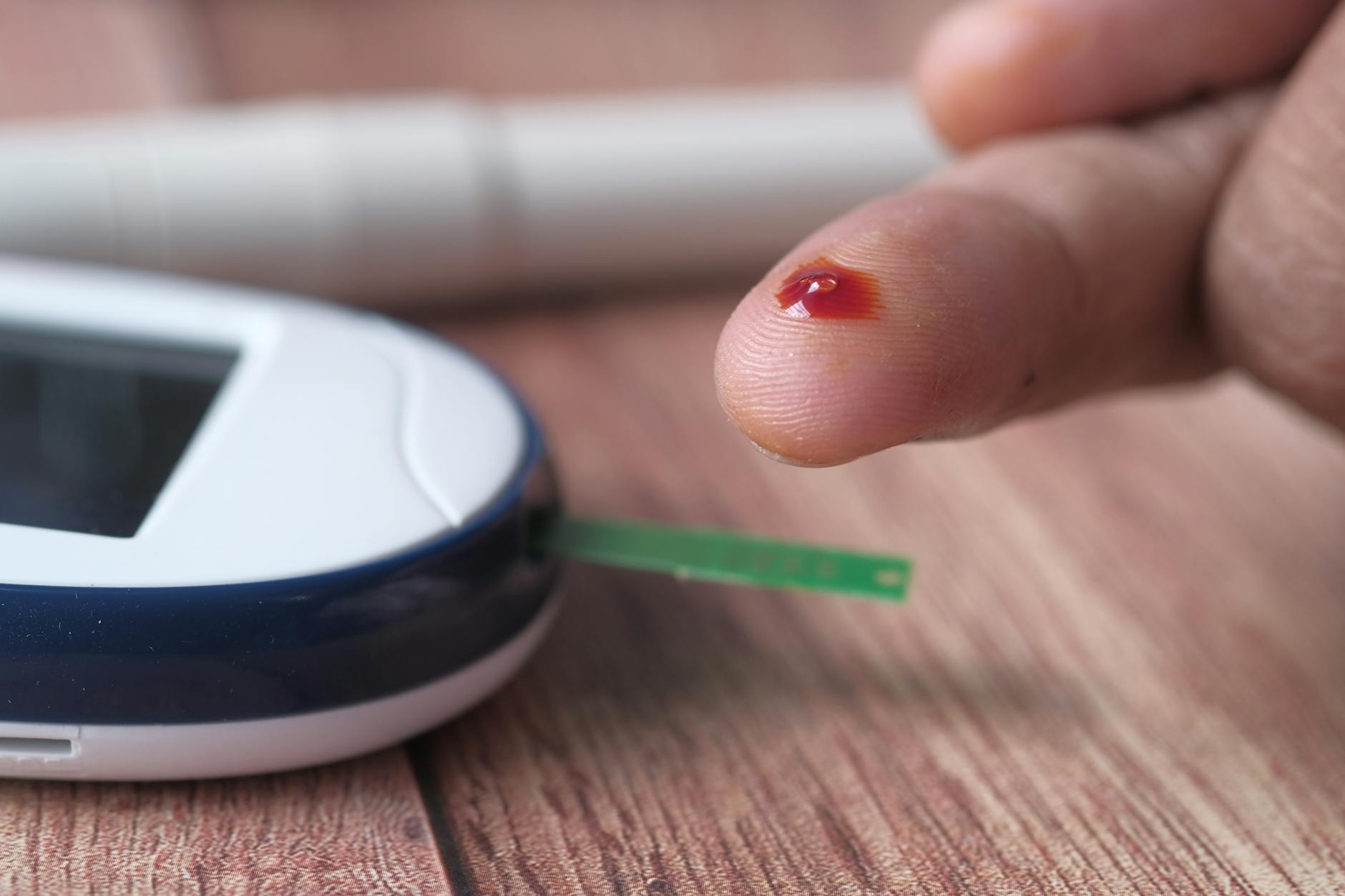Unleash the power of your will and conquer the Sugar Dragon with these essential tips for managing Type 2 Diabetes.
Table of Contents
Managing type 2 diabetes can be a challenging journey, but with the right tools and knowledge, it is possible to take control of your health and slay the sugar dragon. In this blog post, we will explore some practical tips and strategies for effectively managing type 2 diabetes and living a healthier, more fulfilling life.
Know Your Enemy: Understanding Type 2 Diabetes
Type 2 diabetes is a chronic condition that affects how your body processes glucose, the main source of energy for your cells. In type 2 diabetes, your body either becomes resistant to insulin or doesn’t produce enough insulin to maintain normal blood sugar levels. This can lead to a variety of complications if not properly managed, including heart disease, nerve damage, and vision problems.
One of the key factors in managing type 2 diabetes is understanding how different food choices can impact your blood sugar levels. Carbohydrates, in particular, can cause a spike in blood sugar, so it’s important to monitor your intake and choose complex carbs, such as whole grains and vegetables, over simple sugars like candy and soda.
Regular exercise is also crucial for managing type 2 diabetes, as it helps improve your body’s sensitivity to insulin and can lower your blood sugar levels. Aim for at least 30 minutes of moderate-intensity exercise most days of the week, such as brisk walking, biking, or swimming.
Feeding the Beast: Tips for a Diabetic-Friendly Diet
When it comes to managing type 2 diabetes, what you eat plays a significant role in controlling your blood sugar levels. A balanced diet that focuses on whole, nutrient-dense foods is essential for keeping your diabetes in check.
Aim to fill your plate with a variety of foods, including lean proteins, healthy fats, and plenty of fiber-rich vegetables. Avoid processed foods and sugary snacks, as these can cause rapid spikes in blood sugar levels. Instead, opt for whole grains, such as quinoa and brown rice, and choose lean protein sources like chicken, fish, and tofu.
Monitoring your carbohydrate intake is also important for managing type 2 diabetes. Carbohydrates have the biggest impact on blood sugar levels, so it’s essential to be mindful of how much and what type of carbs you’re consuming. Consider meeting with a registered dietitian who specializes in diabetes management to help create a meal plan that works for you.
Keeping the Dragon at Bay: Exercise and Physical Activity
Exercise is a powerful tool in the arsenal against type 2 diabetes. Not only does it help improve your body’s sensitivity to insulin, but it can also aid in weight loss and reduce your risk of developing complications related to diabetes.
Aim for a mix of cardiovascular exercise, strength training, and flexibility work to help manage your diabetes. Cardiovascular exercise, such as walking, running, or cycling, can help lower your blood sugar levels and improve your overall heart health. Strength training, on the other hand, can help increase muscle mass, which can in turn improve your body’s ability to process glucose.
Remember to listen to your body and start slow, especially if you’re new to exercise. Consult with your healthcare provider before starting any new exercise regimen, especially if you have underlying health conditions.
Celebrating Small Victories: Tracking Your Progress
Managing type 2 diabetes is a journey, and it’s important to celebrate the small victories along the way. Keeping track of your progress, whether it’s through monitoring your blood sugar levels, tracking your meals, or noting your exercise routine, can help you stay motivated and on track.
| Tip | Description |
|---|---|
| Avoid sugary beverages | Avoid drinks like soda, fruit juice, and sweetened teas as they can cause spikes in blood sugar levels. |
| Choose complex carbs | Opt for whole grains, beans, and vegetables which are high in fiber and can help stabilize blood sugar levels. |
| Limit processed foods | Avoid processed foods high in added sugars, fats, and salt which can contribute to weight gain and blood sugar spikes. |
| Monitor portion sizes | Be mindful of portion sizes to prevent overeating and keep blood sugar levels in check. |
| Stay active | Regular exercise can help improve insulin sensitivity and reduce blood sugar levels. |
Consider using a journal or an app to keep track of your daily activities and health metrics. You can also set goals for yourself, whether it’s achieving a certain number of steps per day, lowering your A1C levels, or trying a new diabetes-friendly recipe each week. Remember, progress is progress, no matter how small.
Dealing with Dragonslayers’ Burnout: Managing Diabetes Burnout
Managing type 2 diabetes can be exhausting, both physically and emotionally. It’s normal to experience burnout at times, but it’s important to recognize the signs and take steps to address it before it becomes a bigger issue.
If you’re feeling overwhelmed or fatigued by managing your diabetes, consider reaching out to a mental health professional or joining a support group for individuals with diabetes. Talking to others who are going through similar experiences can help you feel less alone and more supported in your journey.
Self-care is also essential for managing burnout. Whether it’s taking a walk in nature, practicing meditation or deep breathing exercises, or indulging in a favorite hobby, make time for activities that bring you joy and relaxation. Remember, taking care of your mental health is just as important as managing your physical health.
Conclusion
Managing type 2 diabetes is a lifelong journey, but with the right tools and strategies, it is possible to take control of your health and live a fulfilling life. By understanding your diabetes, following a diabetic-friendly diet, staying active, tracking your progress, and managing burnout, you can slay the sugar dragon and thrive with diabetes.
FAQ
Can type 2 diabetes be reversed?
Type 2 diabetes can be managed and controlled through lifestyle changes like diet and exercise, but it is generally considered a chronic condition that cannot be fully reversed.
How often should I monitor my blood sugar levels?
It’s recommended to monitor your blood sugar levels regularly, according to your healthcare provider’s guidance. This typically involves checking before and after meals, as well as at other specific times of the day.
Are there any specific foods I should avoid with type 2 diabetes?
Yes, it’s best to avoid foods high in added sugars, saturated fats, and refined carbohydrates. Processed foods, sugary beverages, and high-glycemic index foods should generally be limited in a diabetic-friendly diet.
How can I prevent diabetes burnout?
To prevent diabetes burnout, practice self-care, seek support from healthcare professionals or support groups, set realistic goals, and monitor your mental health. Taking breaks, staying organized, and staying engaged with your care plan can also help prevent burnout.




